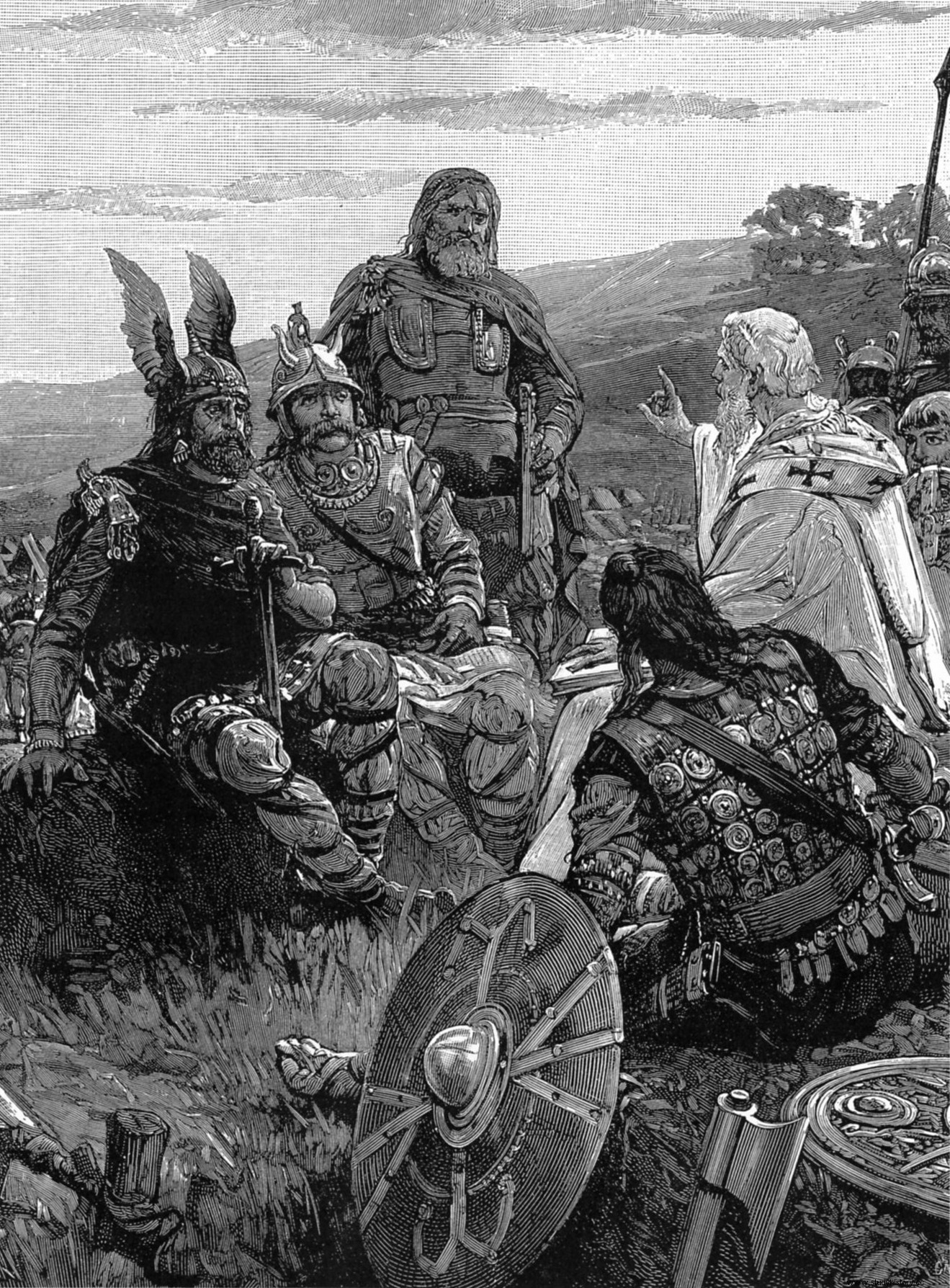 In the last blog entry we commented that after the battle of Philippopolis (250 AD) armed confrontations became general between Goths and Romans and the looting of cities of the Empire by the former, until in the year 268 the Roman Emperor Claudius II defeated the Goths at the Battle of Nisch.
In the last blog entry we commented that after the battle of Philippopolis (250 AD) armed confrontations became general between Goths and Romans and the looting of cities of the Empire by the former, until in the year 268 the Roman Emperor Claudius II defeated the Goths at the Battle of Nisch.
More than 50,000 barbarians were left on the battlefield and the rest were taken as prisoners to Rome by the new emperor Aurelian (Claudius had died after the battle from an epidemic probably caused by the amount of corpses piled up in Nisch).
Once in Rome, Aurelian negotiated with the Gothic leaders and offered to settle within the borders of the Empire, specifically in Dacia (currently Hungary and Romania). The Goths accepted and for more than a hundred years they lived peacefully with Rome and with the local population, with whom they gradually mixed.
And there, in the year 311, our protagonist Ulfilas is born. He was the son of a Cappadocian taken prisoner by the Goths and a Dacian woman, and from a young age he lived with the Goths who had settled there forty years earlier. Neither the Goths nor most of the Dacians were Christians, but Ulfilas must have come into contact with one of the small communities of the religion that Constantine had proclaimed a few years earlier as the official religion of the Empire.
Ulfilas traveled to Constantinople and was educated in Christianity by Eusebius of Nicomedia, who was himself a disciple of Bishop Arius. Ulfilas was ordained a priest and at the age of thirty he was appointed bishop of Dacia and sent to preach the word of God among the pagan Goths of his land who still worshiped the Germanic gods.
However, the doctrines of Arius that Eusebius taught Ulfilas were not shared by the great majority of the thinking heads of early Christianity. It is not a matter of entering into great theological reflections here. Suffice it to say that by maintaining that Jesus was the son of God but not God himself, Arius questioned two of the fundamental principles of Christianity:the Holy Trinity and the divinity of Jesus. At the Council of Nicaea, the Arian doctrine was defeated and Arius himself was declared a heretic.
But back to our protagonist. Back in his land he began to preach among the Goths, not without difficulty and without suffering persecution at the behest of the pagan king Ermanric. But little by little he was capturing faithful who met almost in secret and formed small communities.
But he ran into a difficulty:the Goths did not know writing, so they could not read the Bible. However, this did not deter Ulfilas who set himself a herculean task. In the first place he created an alphabet of the Gothic language giving form to the written word in the language of the Germanic barbarians. Once this was done (already complicated) he had to teach his faithful to read, a task that should not have been easy either, but which he managed to accomplish. He finally translated from Greek into the new written language learned by the Goths the entire New Testament and much of the Old. The alphabet created by him and his translation of the Bible were used for centuries by a good part of the Germanic tribes (except the Franks and the Saxons).
Thus, little by little, the Goths were converted to Christianity taught by Ulfilas, that is, to the Arian doctrine. That would cause serious problems in the following centuries as the Goths moved south, especially those who settled in Italy and Spain... but that's another story.
